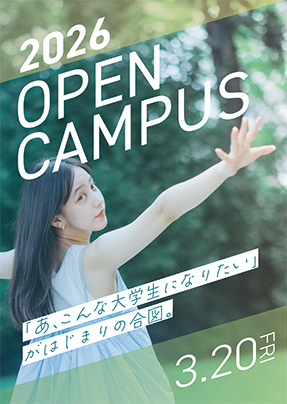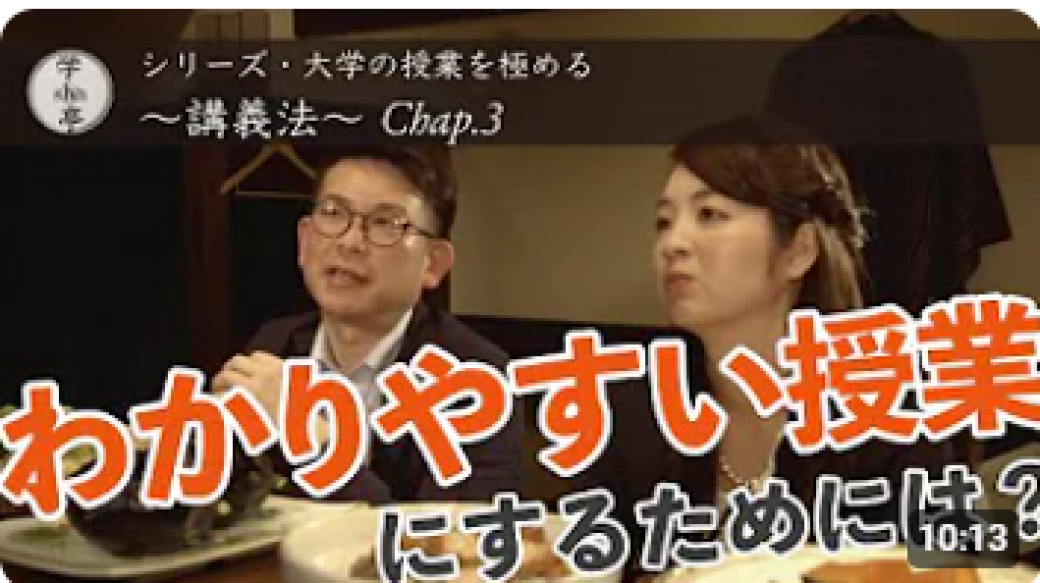
School for Excellence in Educational Development
Contributing to improving Soka University's "academic ability"
Our undergraduate education further embodies our founding principles and goals, and aims to nurture creative individuals.
We will continue to push forward with educational reforms that will contribute greatly to producing global citizens for the 21st century.
About the Organization
Introduction of the organization and its activities
We are engaged in a wide range of initiatives aimed at improving the quality of education and supporting learning.
history
history
School for Excellence in Educational Development was established in April 2010 as a section responsible for enhancing undergraduate education and establishing an improvement cycle for educational programs, integrating three existing institutions: the Center for General Subject Management, the World Language Center (WLC), and the Center for Teaching and Learning Activities (Center for Excellence in Teaching and Learning). School for Excellence in Educational Development is also responsible for the operation of the interdisciplinary Global Citizenship Program (GCP), which started at the same time.
The Center for General Subject Management was established in April 2003 as an institution that provides and manages general subjects. Going back further, it can be traced back to the General Subject Management Committee (established in 1995) that aimed to review the general education curriculum in response to the outline of higher education in the 1990s. With the transition from the Management Committee, the Center was responsible for enhancing basic education, including high school-university collaboration through pre-admission preparation programs and introductory education in the first year, and for providing general subjects classified into eight subject groups: "University Subjects," "Career Education Subjects," "Language Subjects," "Health and Physical Education Subjects," "Humanities, Arts, and Philosophy Subjects," "Society, Culture, and Life Subjects," "Nature, Mathematics, and Information Subjects," and "Peace, Humanity, and World Subjects." Currently, the Center for General Subject Management, which is included in School for Excellence in Educational Development, provides subjects across a total of 11 subject groups, including these subject groups, "Japan Studies Program (general subjects offered in English)," "Japanese Language and Japanese Culture Subjects (subjects offered to international students)," and "GCP Subjects." Next, the World Language Center (WLC) was established in 1999 as an institution responsible for language education at our university. Finally, the Centre for Education and Learning Activities (Center for Excellence in Teaching and Learning) was established in April 2000 as an institution to support learning and educational activities with the aim of further improving and developing educational activities.
Currently, the institute is working on formulating "Learning Outcomes" (January 2011) and improving classes through assessments in order to "guarantee the quality of education" through common subjects that form the foundation of undergraduate education. In addition, the institute is striving to improve education through FD activities, such as holding FD seminars six to eight times a year and the "Soka University FD Forum" in cooperation with the university-wide FD committee.

Philosophy
Philosophy
"About the educational philosophy and goals of the organization"
Nurturing creative individuals - aiming to become global citizens of the 21st century
As stated in Founding Spirit, Soka University is a university of "human education." The founder said, "Soka education is human education that is committed to humanism, culturalism, and pacifism, and aims to create open personalities that can coexist with the world." (*1) Thus, the goal of human education at Soka University can be said to lie in striving for "whole human beings" and "creative human beings."
"Common subjects" are a group of subjects developed based on this Founding Spirit, and are subjects that all Soka University students can study directly, separate from the specialized subjects in their faculties and departments. Of course, the main purpose of common subjects is to develop basic academic skills, including language skills, and to acquire a wide range of knowledge, but the goal of common subjects, based on our university's human education, is not only to cultivate awareness of issues facing the times and society, but also to cultivate practical wisdom and creativity that lead to the cultivation of one's character.
Based on these ideals and goals, all students are proud to study at Soka University, and regardless of their faculty, they are taking part in the "Soka Core Program," which aims to acquire a broad range of knowledge by studying designated subjects from five subject groups: (1) "Basic Subjects," (2) "University Subjects," (3) "Language Subjects," (4) "Global Citizenship Education Subjects," and (5) "Mathematics, Data Science, and Natural Science Subjects."
Next, I will give three specific goals.
The first is to become an independent learner.
It goes without saying that in universities, the highest educational institutions, learning cannot be passive. Students are expected to be proactive in their learning, having a clear awareness of problems, actively researching literature, and expressing the process and results of their learning in various ways. The Soka education ideal of a "creative person" is, first and foremost, an independent learner like this.
For this reason, it is important to always have a sense of purpose, "why." A sense of purpose acts as motivation for learning and is a powerful force in promoting independent learning. It also gives rise to strong thinking. In this way, learning with an awareness of problems can be said to foster the ability to discover problems. The next goal is to develop the ability to gather information through various media, analyze and consider that information, and arrive at a definite answer; this is known as problem-solving ability.
In addition, in today's world, there is a particular demand for presentation skills. In particular, we must focus on improving "written expression skills." This requires that students also become proficient in using the Japanese language (reading, writing, and speaking). Only then can students become independent learners who "think for themselves, explore for themselves, and present for themselves." In this sense, university learning can be said to be essentially "research." We would like to focus on nurturing independent learners through the study of general subjects.
The second is "fostering the ability to coexist with multiple cultures."
Our university has been focusing on cultural exchange and has endeavored to cultivate talented individuals who can contribute to building world peace, as well as global citizens who can create value on a global scale. This will likely become even more important in the future.
The key to understanding and interacting with different cultures is, of course, English and other language skills. In this age of globalization, where "knowledge knows no borders and globalization continues to advance," language skills, especially English, are considered essential. Furthermore, learning not only English but also other foreign languages not only broadens one's horizons, but also gives one a passport to world friendship.
In the general subjects, with the cooperation of Faculty of Letters and WLC staff, we offer language education in 20 languages, including English. In order to utilize and further brush up on the language skills cultivated here, studying abroad is highly recommended. Based on the recognition that "there is no learning without language," we would like to further devote our efforts to acquiring and improving foreign languages.
The third is to "acquire true education."
By their very nature, specialized subjects in faculties and departments are limited to relatively narrow areas, and some degree of segmentation is unavoidable. In contrast, the significance of common subjects is that, even if the subject is narrow, they do not stray from the origin of humanity or man, that is, they firmly maintain a universal perspective for us. The founder of our university once pointed out that "the free development of academics and the magnificent enlightenment of civilization came from looking squarely at life and mankind and striving for their development" (※2). It can be said that maintaining such a perspective on life and man, which could be said to be the origin, is the great significance of the common subjects at our university.
The founder also mentioned in his speech that "an international journalist wrote in his book that 'the crucial difference between top Westerners and their Japanese counterparts is the breadth and depth of their education.'" (*3) This "breadth and depth of education" is not something that can be achieved overnight, but is something that is cultivated through daily, unremitting effort.
To achieve this, we must first engage in "great reading." Reading during university years is a foundation that could be said to be crucial for life. Next, we would like to promote "great dialogue." Talking with friends and acquaintances breaks down the narrow boundaries of the self and broadens one's horizons to the world. It can be said that only through the daily, steady practice of repeated reading and dialogue can one acquire the power of true culture. We hope that the study of general subjects will progress to three-dimensional learning that includes such daily activities, resulting in a broader perspective and deeper understanding of humanity.
(Note) Quoted from the founder's speech
*1 Message given at the opening ceremony of the Beijing office on March 7, 2006
*2 3rd Entrance Ceremony: "Be a Creative Person"
*3 8th Entrance Ceremony: "The 21st Century is Your Stage"
Learning Outcomes
Learning Outcomes
School for Excellence in Educational Development formulates learning outcomes for common subjects (referred to as "common education") offered to students across all faculties at the university.
General Education Learning Outcomes
Our university's general education aims to develop "global citizens" who create value, and cultivates the ability to develop an independent attitude toward learning, collaborate with others to tackle learning tasks, and express and communicate the results appropriately. Specifically, we aim to achieve the following five learning outcomes.
- Acquire the basic knowledge and skills to think and act as global citizens.
- Able to think logically and communicate in appropriate ways.
- Able to communicate in a foreign language other than one's native language.
- Respect diversity and be able to work collaboratively with others.
- Able to set their own goals and learn independently.
Publications
School for Excellence in Educational Development Newsletter SEED
School for Excellence in Educational Development Newsletter SEED
School for Excellence in Educational Development Research Journal JoLCHE
School for Excellence in Educational Development Research Journal JoLCHE
Syllabus
Syllabus
It is a document that summarizes the content and objectives of a class, learning goals, evaluation methods, teaching materials, and class schedule. It provides important information about the class students will be taking and shows what they are expected to learn. It also serves as a guide for instructors to plan lessons and a guide for students to understand the expectations of the class and progress in their studies.

Each Center

Education and Learning Support Center
(Center for Excellence in Teaching and Learning)
Supporting the improvement of each teacher's teaching ability

World Language Center (WLC)
We also aim to foster an international perspective on campus and improve language skills.

















